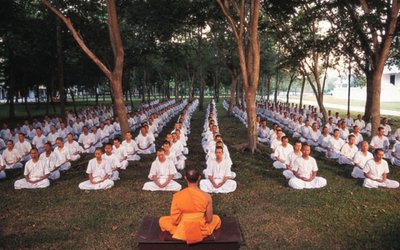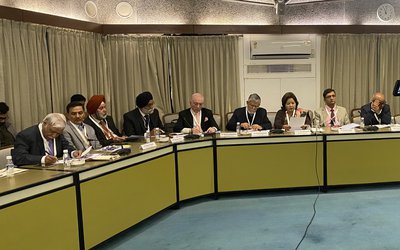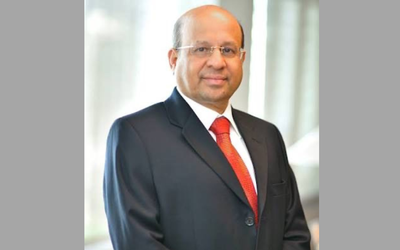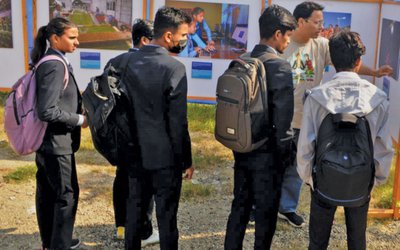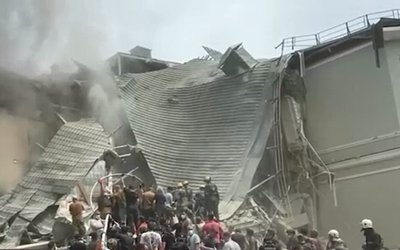Niraj Parajuli and Soul Raj Joshi from Rato Bangala School, Kathmandu, were awarded the title of “Top in the World” in Mathematics in the list of Outstanding Cambridge Learner Awards. The awards recognize the outstanding academic achievements of secondary school learners in Nepal.
Along with Niraj and Soul, over 35 learners received awards for exceptional performance in Cambridge examinations of the June 2012 series.
At a time when the education level and system in the country is going down due to the lack of effective measures taken by the national educational institutions, the GCE qualifications are seen as a major attraction by the students who want to pursue higher secondary level education in Nepal.
The current higher secondary level courses offered by Nepali institutions are viewed as very ineffective and outdated.
“Many of the students, after completing their School Leaving Certificates (S.L.C) examinations, prefer A-level education over the +2 level. The difference in the quality of courses offered is seen clearly. Courses offered by Cambridge are revised nearly every year according to the need of the time, whereas the +2 level courses remain very similar when it comes to revising their course content,” said an educational expert.
Even when it comes to joining bigger universities of the world for higher education, the students who come out from the A level certifications have clearly outperformed the students of +2 levels.
As the 35 students have already proved that there is no problem in the competency of Nepali students, the problem is clearly in the level of education they are taught.
They have shown that Nepali students can not only compete in the global level but also come out on top. Many of the students have earlier achieved similar results as well.
The winners out-performed thousands of candidates worldwide who sat examinations in Cambridge International AS and Cambridge International A Level exams.
“It is encouraging to acknowledge the high standards of education offered by schools across the country as is reflected through these exceptional results,” said Suzy Chowdhury, Schools Development Manager Nepal.
In Nepal, some 42 schools provide the General Certificate of Education (GCE) qualifications. GCE is viewed as one of the most internationally recognized qualifications at the secondary level, according to British Council. GCE examinations are set by the University of Cambridge International Examinations.
Approximately around 4,000 students are currently enrolled in the GCE qualifications. The craze in Nepal for those courses are going high every year as more students have started to prefer the international education courses over the educational qualifications of Nepal.
So, why wouldn’t any one go for the A-levels instead of +2 levels when they can get quality international education here at home?
“The only problem with the A levels is that they are too costly for an average Nepali. Not everyone can afford these courses. So, there is a need of major reform in the Nepali colleges and especially in the courses offered,” said an expert.
Bigger troubles
Problems in the current educational system of the country lie apart from their syllabus offered. The problem is so severe that the Association for Private Educational Institutions Nepal (APEIN) shut down the educational institutions of the nation recently demanding the end of irresponsible behavior of the government, and other political parties and their affiliated student organizations.
“We had to shut down schools to draw the attention towards our problems. If the government doesn’t want private educational institutions, then they should say it clearly, otherwise our problems should be solved,” said Yuba Raj Sharma, general secretary of the Higher Secondary Schools Association Nepal’s (HISSAN).
The private sector schools have taken up the responsibility of providing education to more than 20 million students at all levels and there are more than 8,000 private institutions in the country.

Debesh Adhikari
Adhikari is a computer science student and writes on various contemporary issues.
- The UK Expressed Deep Concerned About Tensions in Nepal
- Mar 09, 2017
- Development Partners and Ministry of Education Agree to drive quality education
- Sep 28, 2016
- END HUNGERNepal plans to end hunger by 2025
- Mar 14, 2016
- UK Hopes For Inclusive Resolution For Nepal
- Sep 17, 2015
- Micromax Launches Bolt D320 For Nepali Market
- Aug 07, 2015

